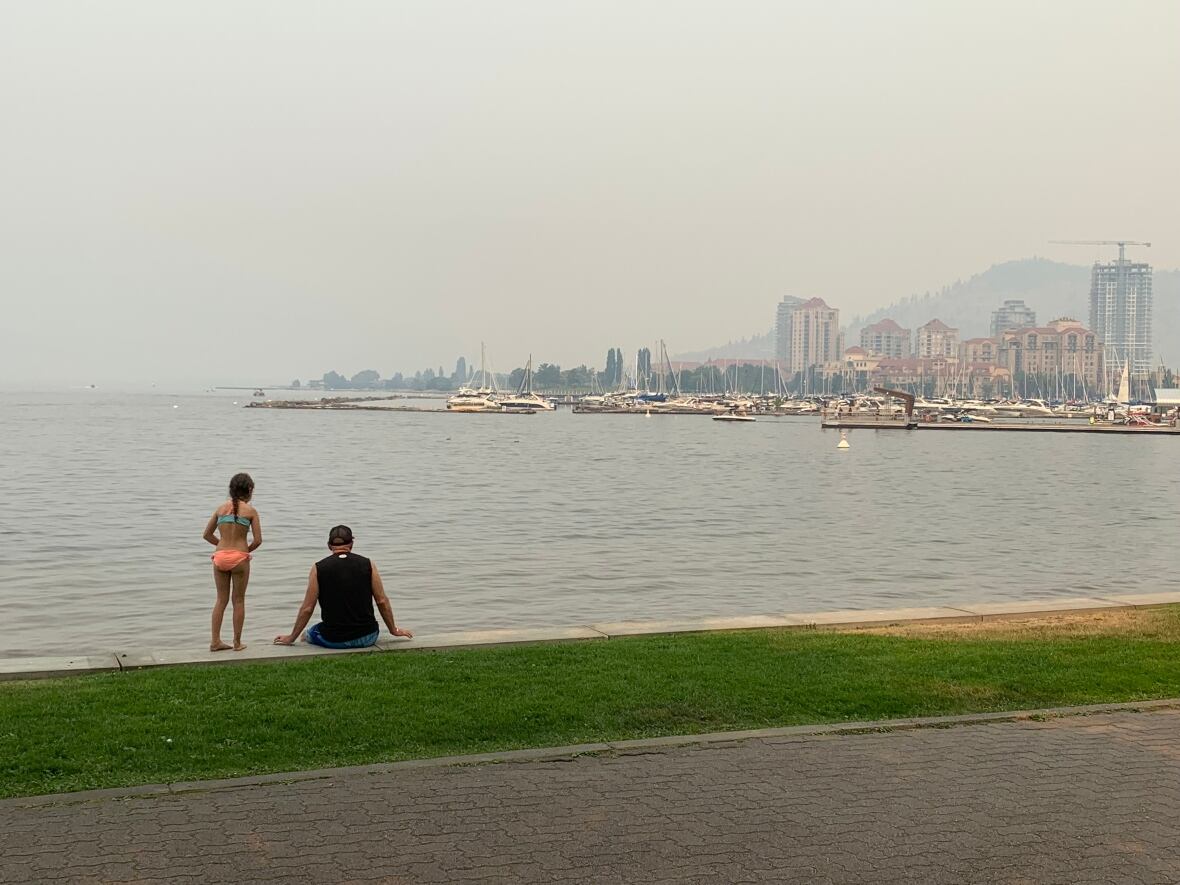Wildfire smoke could provide some relief from heat wave but combination still dangerous, health officials say
'This is considered an emergency situation'

The smoke flowing into the South Coast and Fraser Valley from B.C.'s wildfires could provide some relief from soaring temperatures but officials say the combination remains dangerous, particularly for the most vulnerable.
An extreme heat alert was issued by health authorities in Metro Vancouver and the Fraser Valley Thursday as temperatures, coupled with humidity, reached into the high 30s.
Public health officials in the Vancouver Coastal Health and Fraser Health authorities said they are concerned about the high temperatures.
"This is considered an emergency situation,'' said Dr. Michael Schwandt, a medical health officer with Vancouver Coastal Health. "It can be a life or death situation for many people.''
Along with the heat warnings, Environment Canada also issued an air quality advisory as the South Coast faces some of the worst air quality since September 2020.

Environment Canada meteorologist Armel Castellan told CBC that the smoke can result in cooler temperatures but the mixture is often more threatening.
"I have been saying it's pick your poison because either you have the heat and that's also very dangerous or you have a blend of heat and poor air quality."
Temperature records shatter
More than a dozen temperature records have fallen across southern and central British Columbia during the province's third heat wave of the summer.
Some of Thursday's 15 temperature records shattered previous daily highs by seven degrees or, in Victoria and Comox, eclipsed records that have stood for 101 years.
Little relief for the smoke or heat is expected until Sunday when a cold front is expected to bring in marine air and eventually showers.
"Smoke and heat are both physiological stressors that can make all of us feel quite uncomfortable and they can be quite risky for some people," said Dr. Sarah Henderson, the scientific director with the Center for Disease Control.

Henderson says when it is both smoky and hot, the most vulnerable individuals are seniors living alone, those with chronic conditions, infants and children and those who are pregnant.
Seek cooler spaces and cleaner air
She urges those to seek time in cooler spaces and in spaces with cleaner air.
The Vancouver Emergency Management Agency's manager of operational readiness says June's heat dome came as a shock to officials, making it difficult to mobilize quickly.
But Kirsten Jasper says this time around, they are more prepared.
"We were starting to learn about what the impacts were for some of our vulnerable populations," she told CBC News.
In response to the heat wave, the City of Vancouver opened an overnight cooling centre situated at the Gathering Centre Community Place. The city says two other centres can be opened Friday night if there is enough demand.
A total of 200 water fountains and 14 misting stations are also situated around the city.
"It definitely motivated us to figure out what we can do quickly and how we can do more." Jasper said.
Both Fraser Health and Vancouver Coastal Health are urging people to check in with their vulnerable loved ones.
June's heat wave caused at least 570 deaths, according to the B.C. Coroner's Service — many of them seniors living in isolation.

So far this month, paramedics have only responded to 47 heat-related events across B.C., compared to 829 in June.
"It's going to take a bit of time for people to really understand what the implications of some of these climate change issues are," Jasper said.
"So it's really good to get the word out and to make sure that people understand the seriousness especially of heat events."
With files from The Canadian Press and David Ball